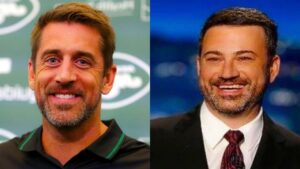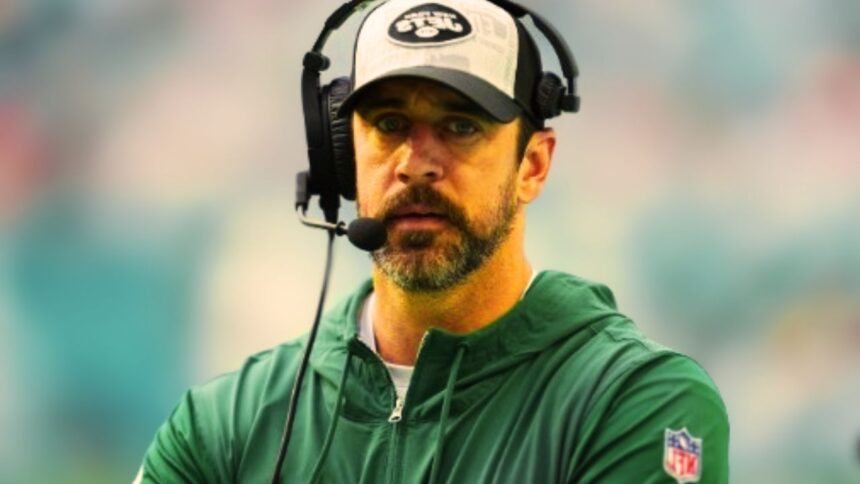The ongoing feud between Jimmy Kimmel and Aaron Rodgers has reignited following reports of Rodgers questioning the events of the Sandy Hook mass shooting. Kimmel, known for his comedic jabs, seized the opportunity to mock Rodgers with a satirical conspiracy theory during a recent monologue.
The rift between Kimmel and Rodgers first emerged earlier this year when Rodgers suggested that Kimmel should be concerned about the release of Jeffrey Epstein’s client list, hinting at potential involvement. Kimmel swiftly fired back, labeling Rodgers as an “Aa—hole” before Rodgers clarified his remarks, claiming he was taken out of context.
Jimmy Kimmel makes fun of Aaron Rodgers’ reported Sandy Hook comments with mock-conspiracy theory https://t.co/UyyjxARn5E
— Fox News (@FoxNews) March 16, 2024
However, the tension resurfaced when reports surfaced alleging Rodgers’ skepticism regarding the Sandy Hook tragedy. In response, Kimmel crafted his own tongue-in-cheek conspiracy theory about Rodgers, poking fun at the quarterback’s injury history and recent stint with the New York Jets.
In his monologue, Kimmel facetiously claimed, “Aaron Rodgers never played football. He’s not a football player. He faked his entire career.” Drawing parallels to Rodgers’ Achilles injury during his brief tenure with the Jets, Kimmel humorously suggested that Rodgers’ alleged body double met his demise, necessitating the real Rodgers to step in.
Kimmel’s mock theory, while clearly absurd, serves as a comedic commentary on the absurdity of Rodgers’ reported skepticism surrounding Sandy Hook. The talk show host quipped that his concocted narrative is “more believable than what Aaron Rodgers told people happened at Sandy Hook.”
Rodgers, in response to the controversy, released a statement affirming his belief in the events of Sandy Hook, dispelling any notions of denial. The timing of these reports coincided with speculation regarding Rodgers’ potential involvement in Robert F. Kennedy Jr.’s political aspirations, adding another layer of intrigue to the narrative.

As the back-and-forth banter between Kimmel and Rodgers continues to unfold, it underscores the intersection of sports, entertainment, and social commentary. While the feud may be lighthearted in nature, it raises broader questions about the responsibilities of public figures in addressing sensitive issues and the role of satire in shaping public discourse.
Ultimately, Kimmel’s comedic take on Rodgers’ reported comments serves as a reminder of the power of humor to dissect and critique societal norms, even in the midst of contentious debates. As the saga unfolds, one thing remains certain: the clash between comedy and controversy is as captivating as ever.
Sarah’s View:
The ongoing feud between Jimmy Kimmel and Aaron Rodgers took a comedic turn when Kimmel mockingly addressed Rodgers’ reported skepticism about the Sandy Hook tragedy. Using satire, Kimmel crafted a tongue-in-cheek conspiracy theory about Rodgers, poking fun at his injury history and football career. Despite the absurdity of Kimmel’s narrative, it serves as a commentary on Rodgers’ reported remarks. As the banter continues between Kimmel and Rodgers, it highlights the interplay between sports, entertainment, and social commentary. While the feud remains lighthearted, it prompts reflection on the responsibilities of public figures and the role of satire in public discourse. Amidst the humor and controversy, one thing is clear: the clash between comedy and contentious issues remains captivating for audiences.




